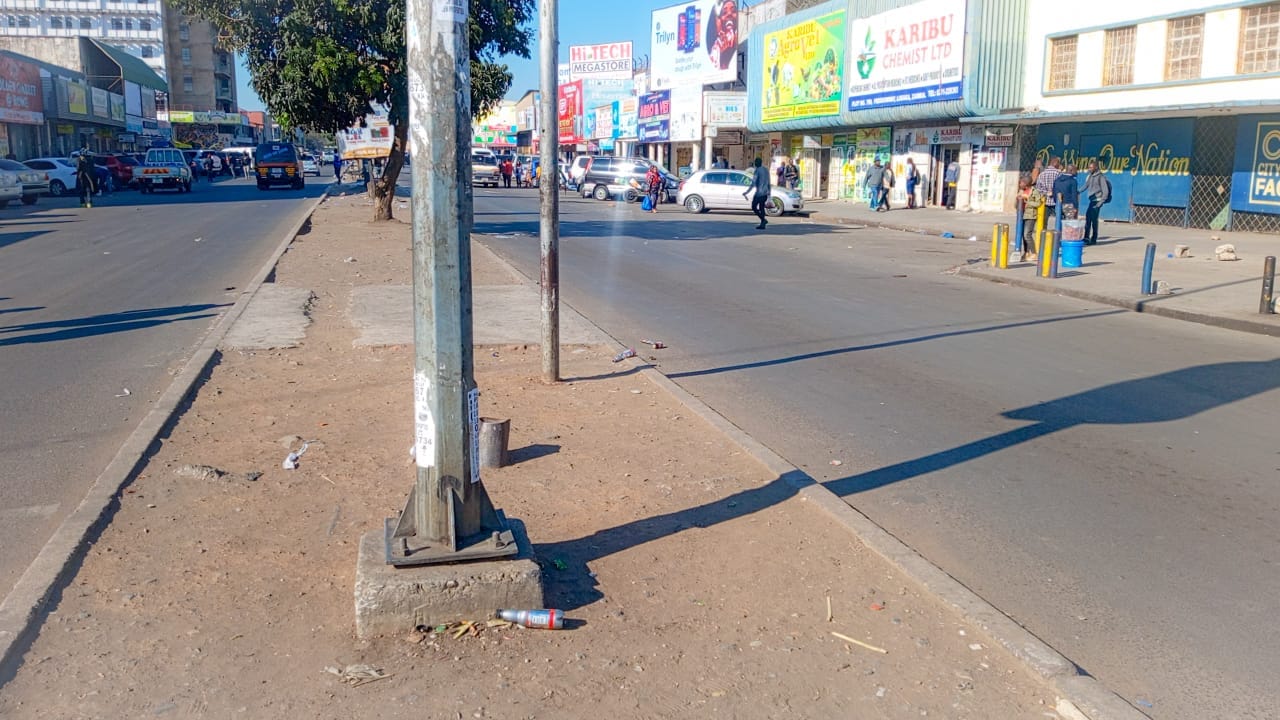By DERRICK SILIMINA
Street vendors or hawkers are often in the news, either clashing with municipal authorities trying to clear them off the streets, or with shop owners who accuse them of undercutting their businesses.
The recent relocation of street vendors to clean up the city of Lusaka has been described by various segments of society as a welcome move that will stimulate the economy of the central business district.
A combined unit of the Zambia police and the Lusaka City Council recently swung into action and removed street vendors from the Lusaka Central Business District (CBD) which was infamously known for its choking garbage, clogged drainages, make-shift stalls and illicit trade and anti-social vices.
And though street vendors have protested this new development, the Zambia National Marketeers Association (ZANAMACA) is hopeful that the displacement of street vendors from Lusaka CBD will be sustainable to restore order in the city.
ZANAMACA President Mupila Kameya stressed that people have no choice but to comply because Government is trying to bring sanity in the city the same way it handled the issue of political party cadres who once controlled the CBD.
“This exercise will be more beneficial to the traders if they begin to move into the designated trading places to reap the full benefits of trading there, especially when it comes to empowerment programmes.”
EXCESSES
Local Government and Rural Development Minister Gary Nkombo on a recent ZNBC Sunday Interview programme outlined excesses that had bedevilled Lusaka city streets.
“Lusaka is what holds the face of this country and street vending is a thorny issue which is a consequence of permitting people to trade arbitrarily. Do you know that on the island of Freedom Way for instance, there was a braai every morning; people roasting meat and under the tables where vendors used to sell their merchandise, you would find 20 litres of Kachasu and I saw that with my own eyes.”
Nkombo noted that with more than 7,500 vendors battling for street spaces in Lusaka, around 6000 empty market stores were available for their occupation. The people idling in the CBD under the guise of street vending were a threat to national security.
Interestingly, more than half of Africa’s GDP comes from the informal sector which accounts for around 80 per cent of the labour force, many of them small traders, according to a recent report by the African Development Bank.
In Zambia, street vending is one of the major activities in the informal economy and is known to be an old practice that has always had a presence in any business district across the country. However, street vending is illegal and considered as a public nuisance.
There are business entities in the CBD which do not operate with ease as their front premises are swamped by street vendors who trade right at their doorsteps; sometimes selling the same merchandise found in the shops.
COMPEL
Now that shop owners have been given their right of way to trade in conditions of sanity, the Minister of Local Government has since hinted that a Statutory Instrument (SI) will soon be enforced to compel shop owners to paint their shops, pave and green the frontage of their business premises.
“It was really nerve-wracking to deal with some vendors who traded along my shop corridors. It was really difficult to attract customers. I am excited that street vendors ought to be in designated trading places and away from the CBD, a move that will allow shop owners to do business with ease,” says Omar Mohamed, one of the shop owners on Lusaka’s Freedom Way.
Moffat Habyarimana, a wholesaler in Kamwala trading area echoes Mohamed’s view and believes that stiffer regulations against street vending will attract more investors.
“It is easy for a well-organized city to attract investment from outside the country and once the local authority here is seen to enforce order in the CBD, investors get attracted to come and do business,” Habyarimana notes.
In terms of promoting tourism in the city, proponents of the industry say a clean Lusaka will attract more visitors since order is restored.
Some governance activists have charged that there is a need to terminate the malignant culture of ruling party cadres who have been influencing street vendors by allocating them trading spaces on the streets, a move that hinders the local authority from undertaking its obligations in the municipality.
Nkombo has noted that as a result of past ruling party cadres’ activities, most councils including the Lusaka City Council got failed to collect revenues to improve their operations of the council. They even struggled to pay staff salaries.
“Councils are still struggling to pay their salaries as the leakages have not been fully sealed. Every single day, we are struggling with a backlog of arrears because councils have not yet perfected the art of collecting revenue. So, the councils will be capacitated and we are moving from a manual collection of revenue to an e-payment system so that the process becomes water-tight. A pilot project is underway.”








